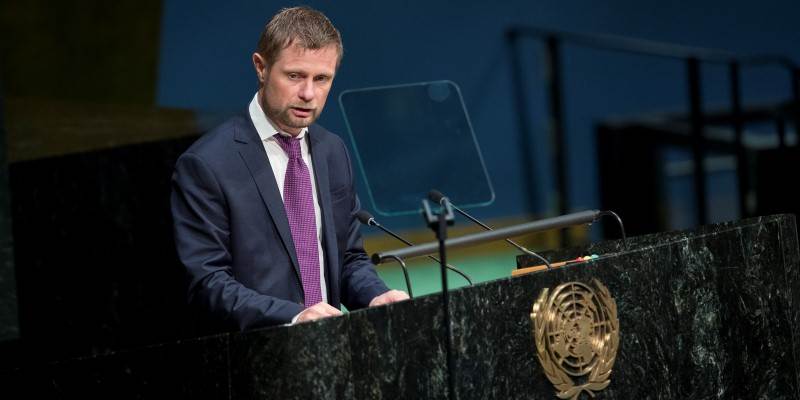President, Excellences, ladies and gentlemen,
I have the honour to make this statement on behalf of the 37 Member States of the Pompidou Group. The Pompidou Group is a Council of Europe entity that upholds the core values of the Council of Europe: those of human rights, democracy and the rule of law.
The Pompidou Group finds it of extreme importance and relevance to remind that drug policy – as all other policy fields – must be developed, implemented and evaluated in light of and in full respect of the fundamental human rights.
The Pompidou Group notes that human rights are highlighted in the outcome document of the UNGASS, and expects the follow-up process to take this fully into account, and to contribute to the task of defining the impact of human rights on the field of drug policy where this is unclear.
The Pompidou Group welcomes the fact that the UNGASS outcome document is based on the concept of a balanced approach to drug policies.
In the follow-up process, both at international and national level, the relevant authorities need to perform objective and continuous monitoring and evaluation of the efforts to reduce drug problems in order to assess whether there are imbalances to be rectified.
The Pompidou Group expects the follow-up process will include scientific work and evidence based practical tools with the aim of enabling Member States to evaluate the cost benefit ratio of the different measures they implement at national level.
The Pompidou Group takes this opportunity to recall a few areas where human rights need to shape and impact on drug policy. There should be no compromise with the fact that people who use drugs should enjoy the same rights under the existing international human rights instruments as all other persons.
First and foremost, the application of the death penalty for drug related offences is not in line with human rights obligations.
Secondly, the application of in-humane punishment and torture for drug related offences is not in line with human rights obligations.
Thirdly, people who use drugs have an uncontested right to equitable access to health care services for their drug addiction and other drug or non-drug related health problems.
The Pompidou Group expects the follow-up process of the UNGASS to take this fully into account, and expects all relevant actors to dedicate themselves to work towards the abolition of the use of death penalty for drug related offences, the abolition of in-human punishment and torture, and ensuring access to treatment and rehabilitation as well as risk and harm reduction measures for all, including those in prison settings, in order to minimise health and social consequences of drug use.
The Pompidou Group welcomes the UNGASS follow-up process, and would like to underscore the expectations for an open debate recognizing human rights as fundamental for a coherent balanced drug policy that facilitates an awareness of both the positive and unintended effects of different measures implemented to address the world drug problem.
